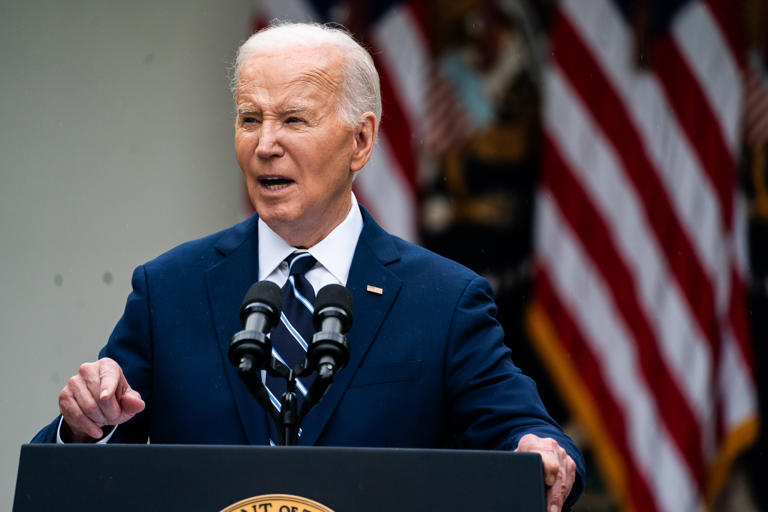The specter of inflation looms large over President Biden’s bid for reelection, presenting a significant challenge to his administration’s economic stewardship. Unlike the decades of relatively stable prices characterized by an inflation rate of around 2 percent annually, the sudden surge in inflation during Biden’s tenure has sent shockwaves through both consumers and policymakers. In June 2022, inflation, as measured by the year-over-year percentage change in the consumer price index, skyrocketed to a staggering annual rate of 9 percent, marking its highest level in 43 years. Despite some moderation, with inflation currently hovering around 3 percent, the failure to bring it down further has raised eyebrows among experts who anticipated a more rapid decline.
The Federal Reserve, in response to the inflationary pressures, had initially taken aggressive measures to cool the economy by raising interest rates. However, contrary to expectations, the Fed has refrained from lowering rates, denying what was anticipated to be an election-year boon for President Biden.
Biden has sought to attribute the inflationary surge primarily to pandemic-related disruptions rather than to his administration’s policies, asserting that his government has made strides in curbing inflation. However, his articulation of these points has at times been imprecise and misleading. On multiple occasions, Biden has erroneously stated that inflation stood at 9 percent when he assumed office, when in reality, it was at a much lower rate of 1.4 percent.
These misstatements from the President have drawn criticism and scrutiny, with some accusing him of attempting to deflect blame for the inflationary surge. White House officials have sought to clarify Biden’s remarks, explaining that he intends to convey that the underlying factors contributing to the 9 percent inflation rate in mid-2022 were already in place when he took office. According to this narrative, the pandemic-induced shocks, such as increased consumer demand and supply chain disruptions, were bound to drive inflation upward, irrespective of who was in power.
Moreover, prominent economists like Olivier J. Blanchard and Ben S. Bernanke have argued that the pandemic-induced shocks played a significant role in driving up inflation, exacerbated by low interest rates and fiscal stimulus measures initiated under both the Trump and Biden administrations. Biden’s legislative agenda, particularly the stimulus package passed in early 2021, likely fueled additional spending, contributing to inflationary pressures.
The invasion of Ukraine by Russia in February 2022 further exacerbated the situation, leading to a surge in energy prices and exacerbating inflationary pressures. Despite these challenges, the White House has sought to highlight Biden’s economic record, comparing it favorably to past administrations, including that of Ronald Reagan, who also grappled with high inflation.
Biden’s attempts to contextualize inflation within the broader narrative of pandemic-related disruptions and geopolitical events like the Ukraine conflict have been met with mixed reactions. While some acknowledge the validity of these explanations, others remain skeptical, questioning the extent to which Biden’s policies may have exacerbated inflationary pressures.
In conclusion, the issue of inflation remains a contentious topic as President Biden navigates the complexities of economic management amidst broader geopolitical challenges and domestic political imperatives. While the root causes of inflation may be subject to debate, its implications for the economy and Biden’s political fortunes are undeniable, making it a focal point of contention and scrutiny in the lead-up to the 2024 presidential election.
